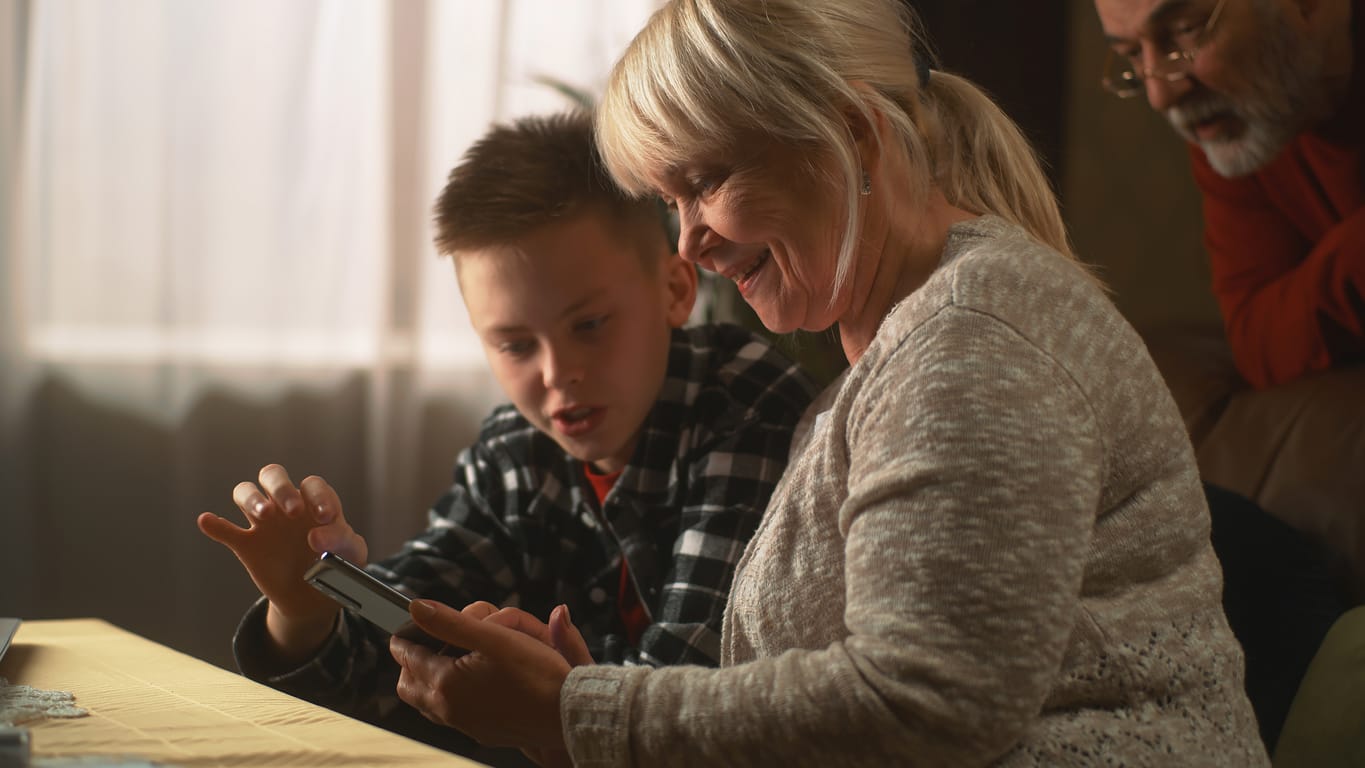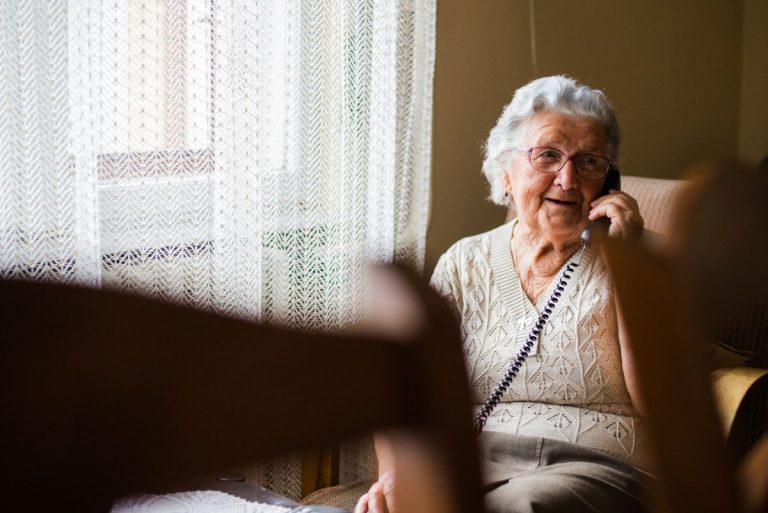In a world marked by change, the holiday season remains a timeless reminder of the value of human connection. Among seniors, these connections hold profound emotional and psychological benefits. This exploration delves into the joy of staying connected, the challenges seniors might face, and the strategies to ensure their holidays are filled with belonging, remembrance, and shared experiences.
The Value of Connection for Seniors
Explanation of the Emotional and Psychological Benefits of Staying Connected for Seniors
Human connection is a fundamental aspect of the human experience, and its importance becomes even more pronounced as individuals age. Seniors benefit from social interaction in numerous ways, including improved mental health, enhanced cognitive functioning, and a stronger sense of purpose. Meaningful connections provide a support network that can alleviate feelings of isolation and depression, promoting overall well-being.
“Connection is why we're here. We are hardwired to connect with others, it's what gives purpose and meaning to our lives, and without it there is suffering.”
― Dr Brené Brown
For seniors, interacting with family, friends, and peers foster a sense of belonging and self-worth. Engaging in conversations, sharing stories, and participating in activities can contribute to improved emotional stability and reduce the risk of cognitive decline. Studies have shown that seniors who maintain strong social ties are less likely to develop conditions like dementia and depression.
The Increased Feelings of Loneliness Seniors May Experience During the Holidays
While the holiday season is often characterized by celebrations and togetherness, it can also magnify feelings of loneliness for seniors. Many older adults may experience the loss of loved ones or be separated from family due to geographical distances. These factors can intensify emotions of isolation and contribute to a sense of detachment during a time when connections are seemingly paramount.
The holidays serve as a poignant reminder of the connections seniors might have lost over the years, intensifying feelings of nostalgia and grief. This emotional weight can exacerbate feelings of loneliness, making it crucial for families and caregivers to be attuned to these sentiments and proactively reach out.
Challenges of Staying Connected During the Holidays
Several obstacles can impede seniors from maintaining connections, especially during the holidays. Geographical distance can prevent them from reuniting with family and friends. Health issues, particularly for those with limited mobility or chronic conditions, can make travel difficult or risky. Moreover, technological challenges can hinder digital communication, causing seniors to feel disconnected in an increasingly digital world.
Understanding the Emotional Factors That Can Hinder Connection
Grief and depression can have a profound impact on seniors' desire and ability to connect. The holidays can magnify feelings of loss and amplify the weight of memories, making it challenging for individuals to engage in celebratory activities. Recognizing and addressing these emotional factors is essential in facilitating meaningful connections.
The Role of Caregivers in Addressing and Overcoming These Challenges
Caregivers play a pivotal role in supporting seniors during the holiday season. By recognizing the emotional challenges that might arise, caregivers can offer companionship, empathy, and understanding. They can also provide practical assistance, whether it's helping seniors use technology, arranging transportation, or creating inclusive celebrations that accommodate health needs.
Practical Ways to Connect with Seniors During the Holidays
Suggestions for In-Person Connections
- Holiday Visits: Nothing beats the warmth of an in-person visit. Whether it's a family gathering or a visit from friends, spending time together can be immensely meaningful for seniors.
- Shared Meals: Gather around a table filled with favorite holiday dishes. Sharing a meal is a wonderful opportunity for conversation and bonding.
- Participatory Activities: Engaging seniors in festive activities like decorating the house, making ornaments, or baking treats together fosters a sense of involvement and joy.
Ideas for Remote Connections
- Video Calls: Video calls allow seniors to see their loved ones' faces and feel more connected despite physical distance.
- Letter Writing: The art of letter writing can be revived during the holidays. A heartfelt letter or card can convey emotions and sentiments that transcend technology.
- Online Games: Engaging in simple online games or trivia challenges can be a fun way to interact and create shared experiences, even from afar.
Guidance on Adapting Holiday Traditions to Include Seniors
- Involve Them: Make sure seniors are included in holiday planning and decision-making. Their input can help shape traditions that cater to their preferences and capabilities.
- Modify Activities: Consider adapting activities to accommodate mobility and energy levels. For instance, if seniors cannot participate in outdoor games, create indoor alternatives.
- Storytelling: Encourage seniors to share stories and anecdotes from their past, enriching the holiday experience for everyone.
Using Technology to Bridge the Gap
Overview of User-Friendly Technology Options for Seniors
- Smartphones and Tablets: Modern smartphones and tablets offer user-friendly interfaces with large buttons and clear visuals. These devices can provide easy access to communication tools, photo sharing, and more.
- Simplified Apps: Various apps cater specifically to seniors, offering simplified versions of popular platforms for communication and entertainment.
Tips for Teaching Seniors How to Use These Technologies
- Patient Approach: Teach at a comfortable pace, focusing on one aspect at a time.
- Hands-On Learning: Provide hands-on demonstrations to help seniors gain confidence in using technology.
- Written Guides: Create step-by-step guides or cheat sheets to reference later.
The Role of Tech in Staying Connected
Technology can be a powerful tool in maintaining consistent contact with seniors, especially when distance is a barrier. Regular video calls, shared photos, and updates through messaging apps can make seniors feel more involved in the lives of their loved ones. Moreover, technology can help bridge generational gaps by enabling them to connect with younger family members who are more tech-savvy.
Navigating Emotional Difficulties During the Holidays
Discussion of Common Emotional Challenges for Seniors
- Grief: The holiday season can magnify the absence of loved ones who are no longer present. Seniors may be grappling with the loss of spouses, friends, or other family members, leading to a profound sense of grief.
- Depression: Seniors may experience feelings of sadness or hopelessness, especially if they are struggling with health issues or facing social isolation. Seasonal Affective Disorder (SAD) can also affect mood due to reduced exposure to sunlight during winter months.
- Isolation: For some seniors, geographical distance from family and friends, coupled with limited mobility, can intensify feelings of isolation and loneliness during a time when connections are celebrated.
Tips for Supporting Emotional Health and Promoting Positive Experiences
- Open Communication: Encourage seniors to express their emotions. Create a safe space where they can share their feelings and memories without judgment.
- Flexible Expectations: Allow seniors to set their own pace for holiday celebrations. Avoid pressuring them to participate in activities that might feel overwhelming.
- Engagement and Involvement: Encourage participation in activities that spark joy, whether it's joining in decorating, attending community events, or engaging in hobbies they love.
- Meaningful Traditions: Emphasize meaningful aspects of holiday traditions that can bring comfort, such as preparing a loved one's favorite recipe or engaging in spiritual practices.
- Limit Stressors: Reduce stress by simplifying plans, delegating tasks, and creating a calm environment.
Suggestions for Professional Resources If Needed
- Therapy and Counseling: Therapists and counselors specializing in geriatric care can provide seniors with a safe space to navigate their emotions and develop coping strategies.
- Support Groups: Joining support groups for grief, depression, or specific challenges can create a sense of belonging and understanding.
- Medical Professionals: If depression or emotional difficulties persist, consulting medical professionals such as geriatricians or psychiatrists can provide tailored guidance and interventions.
- Helplines and Hotlines: Many organizations offer helplines for seniors in need of emotional support. These lines can provide an immediate outlet for seniors to share their feelings.
Helplines and Hotlines
Many organizations offer helplines for seniors in need of emotional support. These lines can provide an immediate outlet for seniors to share their feelings. One of the best hotlines in the US is the Friendship Line, a signature program of the National Institute on Aging, which began in 1973. It has never gone unanswered. You can reach them at 888-670-1360. These helplines are valuable resources for seniors seeking emotional assistance during the holidays and beyond.
Here is some additional information about helplines for seniors in need of emotional support:
- Elderline is a national helpline for seniors in the United States. It is available 24 hours a day, 7 days a week. You can reach out to Elderline at 1-800-677-1116. It provides a variety of services, including:
- Emotional support
- Crisis intervention
- Information and resources on elder abuse
- Referrals to local services
- The National Suicide Prevention Lifeline is a free, 24/7, confidential service that provides support to anyone in distress, including seniors. You can reach the lifeline by dialing 988.
- The National Alliance on Mental Illness (NAMI) offers a variety of resources for seniors and their caregivers, including a helpline that is available Monday through Friday from 9am to 5pm ET. You can reach the helpline by calling 1-800-950-NAMI (6264).
- The Alzheimer's Association offers a 24/7 helpline for caregivers of people with Alzheimer's disease and other dementias. You can reach the helpline by calling 1-800-272-3900.
Revamp of Tips for Staying Connected with Elderly Loved Ones
In a rapidly changing world, the holiday season remains a testament to the enduring power of human connection. For seniors, staying connected holds deep emotional and psychological benefits. Our article has illuminated the value of engagement, the challenges faced, and the strategies to ensure a season filled with belonging and cherished memories.
From embracing technology to nurturing emotional well-being, this journey underscores the importance of weaving connections that enrich seniors' lives during this festive time. As we celebrate, let's remember that each bond we nurture adds to a tapestry of compassion and care, spanning generations and reminding us of the enduring spirit of togetherness.





